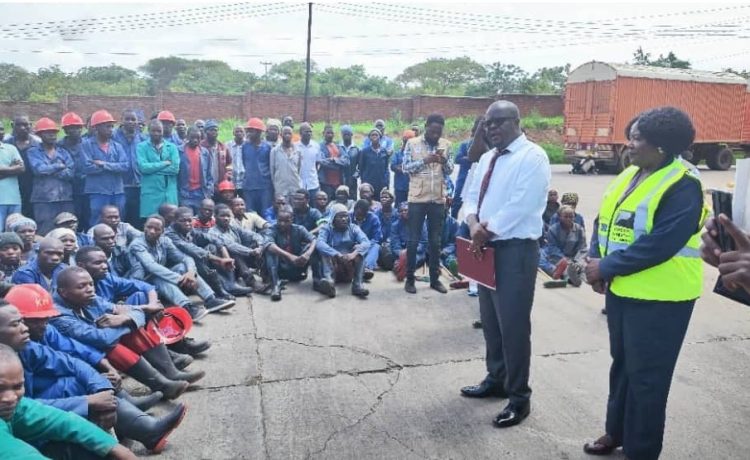Today’s decisive actions taken by Minister of Labour, Vitumbiko Mumba, reflect a crucial turning point in Malawi’s labor landscape. Just nine days following President Lazarus Chakwera’s call to cabinet members to engage actively on the ground, Mumba exemplified the proactive leadership needed to address the entrenched issues plaguing the working conditions in the country.
Closing the CP Feeds Company is not merely an administrative decision; it symbolizes the government’s newfound commitment to workers’ rights and safety. Mumba’s visit to the facility revealed a shocking disregard for basic safety protocols. Workers were found barefoot, lacking essential protective gear, and the company’s inadequate sanitation facilities highlighted a damning neglect of employee welfare. Such conditions are not only hazardous; they stand in direct violation of human dignity and labor laws of this country and, most likely, most countries too.
Mumba’s exhibited firm stance against such negligence is commendable and necessary. In a nation where reports of labor mistreatment have been commonplace, this action sends a clear message: the Chakwera-led Malawian government will no longer turn a blind eye to violations of labor standards. It demonstrates a significant shift towards accountability, where the welfare of workers is prioritized over profits. Moreover, this move aligns closely with President Chakwera’s overarching commitment to the people of Malawi, emphasizing that the revolution of national pride and progress begins with basic rights and dignities.
Furthermore, the allegations of exploitative expatriate labor raise pressing questions about the effectiveness of implementing our labor policies. The emergence of expatriates fulfilling roles easily suited for Malawians illustrates not only a potential economic injustice but also a broader systemic failing that must be addressed. It is vital for the government to take a hard look at employment regulations and ensure that local talent is not only recognized but also employed.
As we applaud the swift action taken by Minister Mumba, we must also acknowledge that this is just the beginning. For a lasting impact, the Minister must ensure that his directives are not seen merely measures for the gallery, but as part of a genuine and broader strategy to foster a safer and more equitable working environment across all sectors in Malawi. Companies must be held accountable, not just once, but continuously, reinforcing a culture of compliance and respect for labor rights.
Truly, this moment in Malawian labor history must herald a new age of reform far beyond the closure of operations of a single company. By establishing and enforcing strict labor standards and profoundly engaging with the workforce, the government can promote a culture that values productivity, safety, and respect for human dignity.
In doing so, Malawi has the opportunity not only to improve its economy but also to build a national identity founded upon the principles of justice and equity. Such outcomes are attainable if the government remains resolute in its mission to mend the “broken bones” of this nation—starting with the very foundations upon which our labor force stands.













